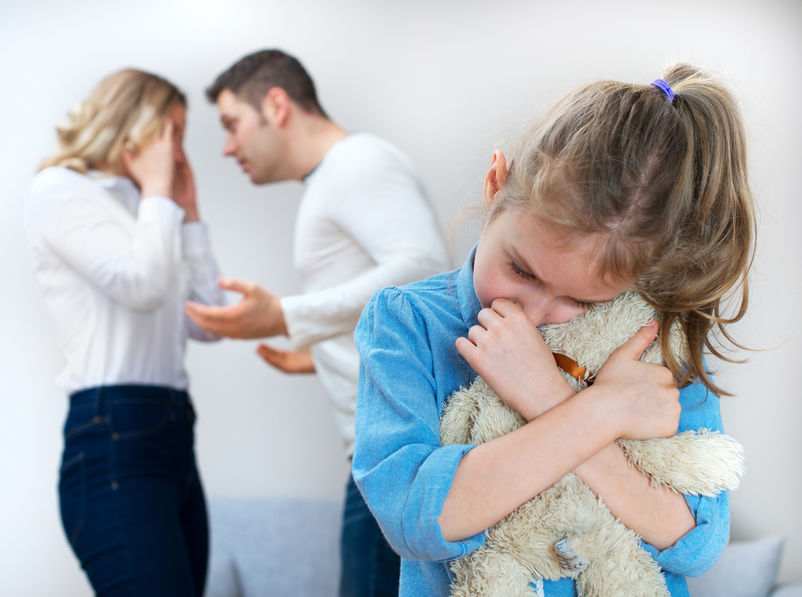I didn’t figure out what love wasn’t until I went through my tsunami of a divorce and came face-to-face with the ongoing trauma caused by experiences of childhood abuse — all at the same time. You see, I was a victim (sorry, I hate that word, but it is what it is) of childhood abuse, what those in the clinical world refer to as Adverse Childhood Experiences.
What are Adverse Childhood Experiences?
According to the Centers for Disease Control (CDC) definition, “Adverse Childhood Experiences (ACEs) is the term used to describe all types of abuse, neglect, and other potentially traumatic experiences that occur to people under the age of 18.”
The term originated in the 1990s, after Dr. Vincent Felitti, head of Kaiser Permanente’s Department of Preventive Medicine in San Diego, discovered a correlation between childhood trauma and unhealthy coping mechanisms “for depression, anxiety, and fear.”
The resulting ACE Study “has produced more than 50 articles that look at the prevalence and consequences of ACEs … Subsequent studies have confirmed the high frequency of adverse childhood experiences, or found even higher incidences in urban or youth populations … [and the] original study questions have been used to develop a 10-item screening questionnaire.”
An ACE score is a tally of different types of abuse, neglect, and other hallmarks of a rough childhood. According to the Adverse Childhood Experiences study, the rougher your childhood, the higher your score is likely to be and the higher your risk for later health problems.”
As it turns out, adverse childhood experiences are surprisingly common, with about two-thirds of survey respondents reporting experience with at least one of the following as a child:
Physical abuse
Sexual abuse
Emotional abuse
Physical neglect
Emotional neglect
Exposure to domestic violence
Household substance abuse
Household mental illness
Parental separation or divorce
Incarcerated household member
People who’ve been through adverse childhood experiences not only face increased physical health risks, but they also love differently because of the negative expectations they’ve come to associate with love. They don’t do this consciously. They are playing out the patterns running through their unconscious mind, their brain controlling the show on auto-pilot.
Until you gain an awareness of your own unconscious patterns, limiting beliefs, and fears, the same tape will keep on playing out for you in the conscious world. If you looked back over the timeline of your life, would you see a pattern of broke relationships with abusive and disrespectful partners? Or a pattern of meeting someone great, only to self-sabotage the relationship because it seemed too good to be true?
When you’ve been through adverse childhood experiences, your unconscious mind may become your own personal bully, telling you to believe lies such as these:
“All the people I love will hurt or abuse me”
“I deserve to be treated badly”
“I am not worthy of lasting and loving relationships”
Our wonderful unconscious brain then seeks to prove us right and keep us safe. The patterns then continue playing out in our version of love. The good news is that you can heal, learn positive coping mechanisms and live a long, healthy, happy life full of true, satisfying love.
“There are people with high ACE scores who do remarkably well,” Jack Shonkoff, a paediatrician and director of the Center on the Developing Child at Harvard University, told NPR. “Resilience, he says, builds throughout life, and close relationships are key. Recent research also suggests that for adults, trauma-informed therapy — which can center on art, yoga, or mindfulness training — can help.”
In my own experience, dealing with your childhood trauma as an adult is a powerful opportunity to learn what real love is. When you learn how to love yourself absolutely and unconditionally, because you are more than enough, you learn how to love others while setting boundaries around what you will and will not accept.
Learning to love yourself means learning that you can say no and not settle for any man or woman who happens to come along because you feel lonely. Instead, you’d rather be alone to do more self-discovery, than set out on a course that makes you a magnet for the kind of romantic love you want as well.
I never really knew what love was until I loved myself unconditionally. Once I did, I found an amazing new partner.
Along the way, I’ve learned so much.
I’ve learned that love is a verb, and we can choose who we love.
I’ve learned that I am so worth loving.
I’ve learned to let go of the past so that I can be in love with the now. I’ve learned how to love the perfect imperfections that make me me.
I’ve learned to trust my intuition and see the good in someone.
I’ve learned to love myself even more so that I have more love to give others.
Maybe you, like me, didn’t have great experiences growing up.
Now I know that I have the power to choose to see the flip side of adverse childhood experiences.
If I can do that, so can you.

